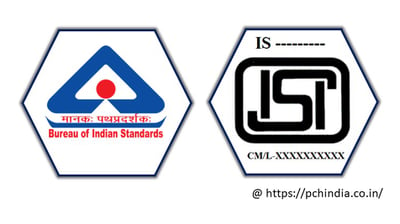Our services
From consulting and strategy development to implementation and support, our comprehensive services can help your business thrive.
Product compliance refers to the adherence of a product to specific regulations, standards, and requirements set by governing bodies, industry associations, or consumer safety organizations. It ensures that the product is safe, meets quality standards, and is fit for its intended purpose. Compliance may include various aspects such as labeling, packaging, materials used, manufacturing processes, and environmental impact. Non-compliance can lead to legal consequences, reputational damage, and harm to consumers. Therefore, manufacturers and businesses must prioritize product compliance to demonstrate their commitment to safety and quality. This involves thorough testing, documentation, and ongoing monitoring to ensure continuous compliance throughout the product's lifecycle. By prioritizing product compliance, companies can not only protect their customers but also build trust and maintain a competitive edge in the market.
The BIS product certification is a procedure that ensures that products meet the quality and safety standards set by the Bureau of Indian Standards (BIS). One of the most well-known certifications provided by BIS is the ISI mark. The ISI mark is a symbol of quality and signifies that the product has undergone rigorous testing and meets the necessary standards of performance, safety, and reliability. This certification is mandatory for certain products in India, such as electrical appliances, cement, and food products, footwear products, Toys, Textiles, Automotive product, Steel etc.
The BIS compulsory registrations scheme (CRS) for electronic and IT products is an important requirement in India. It aims to regulate the import and sale of these products in the country. This scheme ensures that products meet the necessary safety, quality, and performance standards. To comply with the CRS, manufacturers and importers are required to obtain BIS registration for their products. This registration involves testing the products in BIS-approved laboratories to ensure their compliance with the relevant Indian standards. Once registered, the products receive the BIS certification mark, indicating their conformity to the specified standards.


BEE star rating approval for energy efficiency labeling
The Bureau of Energy Efficiency provides star rating approvals to various appliances and products. This initiative aims to promote energy efficiency and help consumers make informed choices. The star rating system is based on the energy consumption and performance of the product. Higher star ratings indicate greater energy efficiency. This approval is a reliable indicator for consumers to identify energy-saving products, which not only reduce electricity bills but also contribute to reducing carbon emissions. The Bureau of Energy Efficiency conducts thorough testing and evaluation of products before granting star ratings.
EPR Registration for E-waste, Plastic Waste, Battery Waste, Tyre Waste
Extended Producer Responsibility (EPR) certification is a crucial step towards sustainable waste management. It ensures that producers take responsibility for the entire lifecycle of their products, including their proper disposal and recycling. EPR certification is particularly important for specific types of waste, such as E-waste, Plastic Waste, Battery Waste, and Tyre Waste. By obtaining EPR certification in these areas, producers commit to implementing effective waste management systems, reducing the environmental impact of their products, and promoting the circular economy. Overall, EPR certification plays a vital role in addressing the growing concern of waste management and promoting a more sustainable future.
WPC ETA approval for Bluetooth & Wi-Fi enabled devices
WPC (Wireless Planning and Coordination) Equipment type approval is necessary for Bluetooth and Wi-Fi enabled devices. This approval ensures that the devices meet the required technical standards and specifications as per the guidelines set by the WPC. It is mandatory for importing such devices into the country. Additionally, an import license is also required for bringing in these devices. This license grants permission to import and distribute the devices in compliance with the regulations and policies of the country. Both the WPC equipment type approval and import license play crucial roles in ensuring the smooth and legitimate importation of Bluetooth and Wi-Fi enabled devices.






Mandatory Testing & Certification of Telecommunication Equipment by TEC
The Mandatory Testing & Certification of Telecommunication Equipment (MTCTE) is a certification process required for telecom products in India. This certification is carried out by the Telecommunication Engineering Centre (TEC), which is a testing and certification agency authorized by the Department of Telecommunications (DoT) in India. The MTCTE certification ensures that telecom equipment meets the necessary technical standards and guidelines set by the DoT. This process involves rigorous testing and evaluation of the product's performance, quality, and safety aspects.
Our major Services are as follows
BIS product certification for ISI mark.
BIS compulsory registrations scheme (CRS) for electronic & IT products.
BIS registration & MNRE approval for Solar Products.
Bureau of Energy Efficiency (BEE) star rating approval.
WPC ETA approval for Bluetooth & Wi-Fi enabled devices & Import License.
EPR Registration for E-waste, Plastic Waste, Battery Waste, Tyre Waste, Used Lubricant oil.
WMI code /VIN registration for Vehicles & E-vehicles by BIS.
Mandatory Testing & Certification of Telecommunication Equipment certification for telecom product by TEC.
LMPC (Legal Metrology Packaged Commodities) certification or approval.
FSSAI License /Registration.
PESO Registration.
ISO certification.
Brand Registration/ Trademark certification.
CDSCO Licence.




